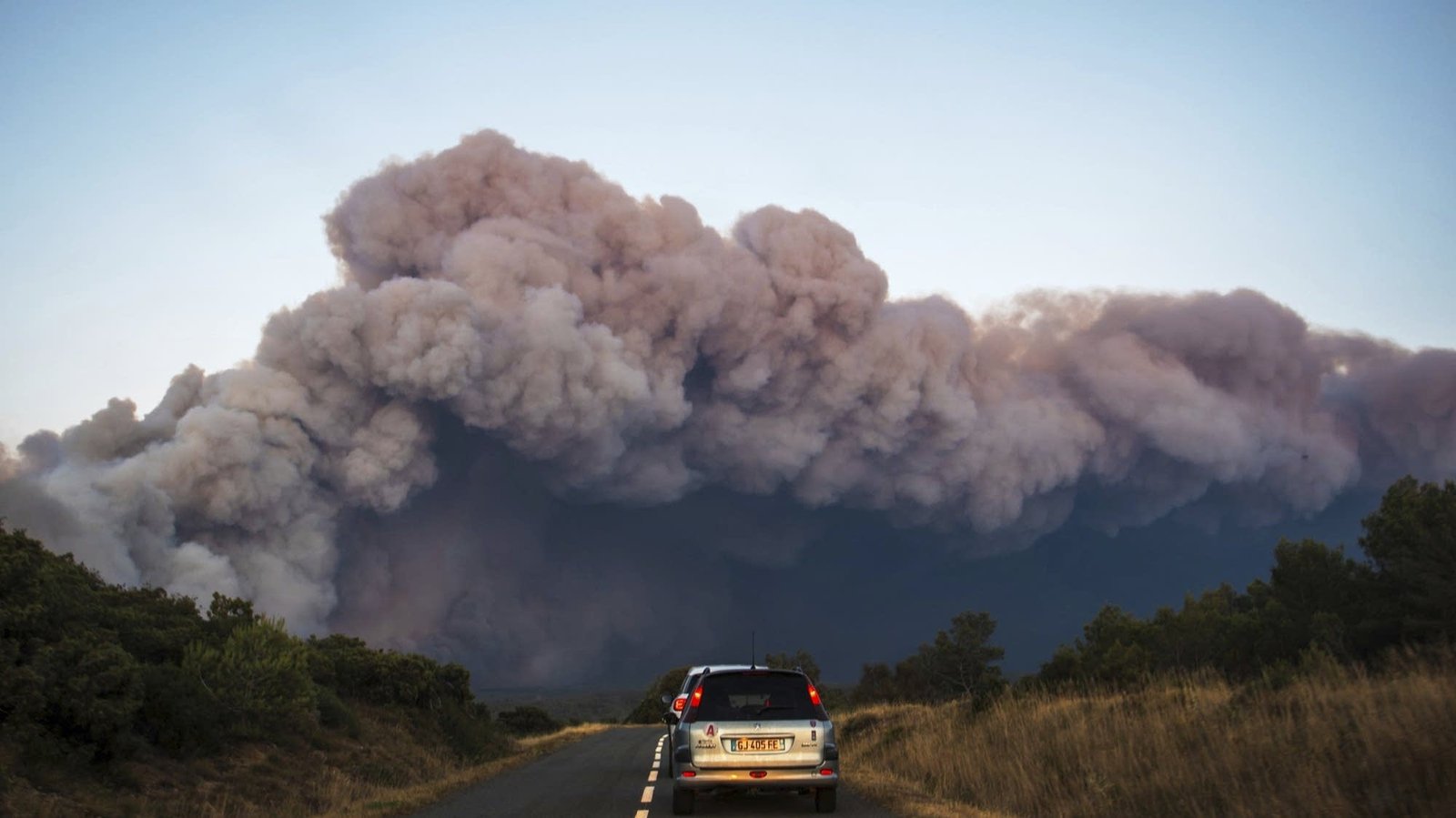
The biggest fire in France this summer is still spreading
The authorities said that the largest fire in France this summer was spreading quickly on Wednesday in the Mediterranean region near the Spanish border after leaving a dead person. The fire burned more than Paris.
About 2000 firefighters and many firewood aircraft fought the fire that broke out on Tuesday afternoon in the village of Ribayot in the Opp area, a rural forest area with wine factories.
The local administration said in a statement that the fire, which burned 32,000 acres, was “very active” on Wednesday. The weather was hot, dry and stormy, making it difficult for firefighters to contain the fire.
One person died in his home, nine others were injured, including seven firefighters, and at least one person was missing, according to the statement.
Jack Peru, the mayor of the village of Junuire, said that all the population was evacuated.
“It is a scene of sadness and ruin.” “It looks like the scene of the moon, everything is burned. More than half or three quarters of the village has burned. It is hell.”
Residents and tourists were asked in the nearby areas to stay in their homes unless they are required to evacuate. Two camps were evacuated as a preventive measure.
His office said he was expected to visit French Prime Minister Francois Bayro on Wednesday afternoon.
The Ministry of Environment said that the Aude region is facing dryness this month, as there are restrictions on the use of water. The statement said that the lack of rain in recent months “played a major role in the spread of the fire, because the vegetation is very dry.”
I witnessed southern Europe Multiple large fires This summer. Scientists warn that climate change increases the frequency, intensity of heat and dehydration, making the area more vulnerable to forest fires. Last month, a huge fire arrived in the southern port of Marseille, the second largest city in France, He left about 300 people who were injured.
Europe is the world The fastest driving continentWith the increased temperatures at the speed of twice the speed of the global average since the 1980s, according to the Climate Change Service in the European Union.













Post Comment